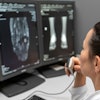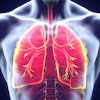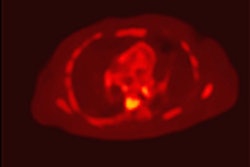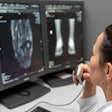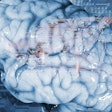Dear Artificial Intelligence Insider,
Over the last few years, radiology has come a long way in how it views artificial intelligence (AI). Initial fears that AI would soon make radiologists obsolete have largely given way to recognition that the technology will augment, not replace, them.
Indeed, the radiology community's proactive understanding of the opportunities that AI provides is an example for other clinical specialties to follow, according to a new editorial by Dr. Enrico Coiera, PhD, of Macquarie University in Sydney. Our coverage of his article is this edition's Insider Exclusive.
We also have two new columns in our series on practical considerations for AI by consultant Michael J. Cannavo -- the PACSman. In part 2, Mr. Cannavo reviews the variables that affect return on investment from AI, while part 3 explores other key AI issues.
In other news, researchers from Memorial Sloan Kettering Cancer Center in New York City have developed a deep-learning network that can generate high-quality PET images more than 100 times faster than conventional methods. Meanwhile, a group from Harvard Medical School has reported that its AI algorithm is capable of predicting -- from analysis of routine CT scans -- treatment response and the likelihood of survival in lung cancer patients.
In addition, researchers from Johns Hopkins University found that a combination of radiomics and a machine-learning algorithm could accurately differentiate pancreatic ductal adenocarcinoma from a normal pancreas. They believe that their method could potentially enable early diagnosis of this highly lethal cancer.
A deep-learning algorithm identified prostate cancer on multiparametric MRI nearly as well as experienced radiologists, according to researchers from the University of California, Los Angeles. It also predicted lesion aggressiveness.
In other developments, an AI algorithm was deemed capable of detecting incorrectly positioned catheters in pediatric patients. Also, a special report has identified the five things needed to accelerate the use of AI in radiology.
Can ultrasound computer-aided diagnosis software stratify thyroid nodules by their risk of malignancy as well as a sonography expert can? No, but it can still be useful, according to a team of researchers.
AI is poised to augment the work of clinicians in several key areas. Important challenges still need to be overcome, however.
In an effort to highlight the need to improve cybersecurity standards for CT or MR scanners, an Israeli group has developed AI-based malware that can realistically alter the appearance of lung tumors on 3D CT scans.
AI can also bolster the performance of digital breast tomosynthesis in both dense and nondense breasts, according to research presented at the recent annual meeting of the Society of Breast Imaging.
On the regulatory front, the U.S. Food and Drug Administration has proposed a new framework for medical AI that accounts for continuously learning algorithms.
Do you have an idea for a story you'd like to see covered in the Artificial Intelligence Community? Please feel free to drop me a line.


